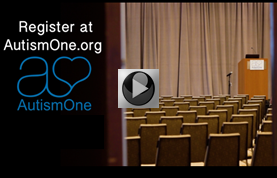The Greatest Sins
The greatest sin Wired Magazine committed in publishing a hit piece about AutismOne was not against us, but against all the young women who work there.
A workplace comes with its own implicit codes of conduct, belief systems, and dogma. They are the unwritten rules we learned about on playgrounds in grade school.
Never talked about, they became part of how we self-corrected our own thoughts and behaviors from kindergarten through high school to stay within one standard deviation of acceptable.
Unfortunately, when we enter college and the workplace the same lessons hold true. Don’t unnecessarily bring attention to yourself by raising awkward questions. If management says vaccines are safe, schedule your child’s flu shots on a workday to demonstrate you are a team player.
Condé Nast, the group that publishes Wired Magazine, made a business decision and decided it was more important to publish a vacant piece of tripe than alert half its work force they are in danger of having children who might be diagnosed with autism in a year or two.
Condé Nast’s management bet their own workforce on discredited ideas that vaccines are perfectly safe and in doing so hastened their own exit from the world of important ideas.
- Ed Arranga's blog
- Login or register to post comments






when I was her age
I worked for a health sciences publishing company on their drug reference book. I typed out and edited hundreds of package inserts before moving on to run the systems. I saw all the warnings, clinical tests, and adverse reactions and wondered why anyone took any drug? Unfortunately, I had forgotten it all by the time I had kids and blindly followed the doctors advice even getting vaccines while my son was sick. We need to find a way to get this message to college students. I might have an opportunity later this month - I'll let you know how it goes.
Student Scholars for Autism
Yes! AO's Student Scholars for Autism program - coming soon to a school near you!
Don't kick yourself, Lisa. The problem with all these "side effect" reports and vaccines is that, categorically, vaccines are a sacred cow kept sacred with circuitous references on the part of many medical entities. So, reactions are not reported. So, when you ask the pediatrician or look at the patient information, the numbers are minimized (i.e., reaction is only 1 in some huge number). This precludes fully informed consent by precluding the correct, comprehensive information from getting out there. Then parents are shown understated stats; so, parents are unable to do an accurate risk-benefit analysis.
Grandparents to ER: The baby had this horrible reaction within hours of the 5-in-1 -- could it be the vaccine?
ER: No, it couldn't be the vaccine.
Grandparents: Why?
ER: Because it couldn't be the vaccine; vaccines are safe/don't do that.
This paraphrased example was taken from a real-life case where grandparents in Kansas questioned the ER after their grandchild's 5-in-1. The baby died.
Perhaps this is a current mantra of this country:
"If it's 'good' for the economy/industry, then it must be safe."
Let's change it to:
COMPASSION BEFORE COMMERCE
I agree Ed
at such a young age the brain soaks up everything not only information. The brain does not fully mature until 25 yrs. Thats why it is so important to get the information out about the dangers of vaccines.